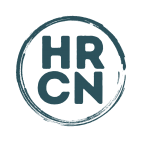Basic City Data
Population Size: 340.000
Surface Area (sq.km): 99.2
Population Density (people/sq.km): 3,604
GDP Per Capita (U.S.$): 38,000
GINI Index: 0.296
In 2010, the City of Utrecht adopted the universal standard of human rights to guarantee a high quality of life for all inhabitants. According to this aim, Utrecht has been working on promoting a human rights culture in the city, fitting the identity of an open, inclusive and social city. In 2013, a Local Human Rights Coalition was born, consisting of NGOs, local civil society organizations, businesses, politicians, policy officers and scientists. The Coalition’s aim is to create awareness and ownership of local human rights in order to enhance the quality of life of citizens by translating global value(s) into the local practices. Although the initiative does focus on this local bottom-up governance approach, best practices are shared with other cities at the national and international level.
The international inspiration for this local initiative is the elaborated set of human rights treaties that are ratified under auspices of the United Nations. Locally, a wide range of policies is developed since the adaptation of this ‘global moral order’ in 2010: Children Rights Agenda, LGTBI Policies, Fighting Poverty programs, Healthy Urban Living and Air Quality measures, Shelter/Refugee City, Anti-Discrimination Policy Agenda, Free Tapwater (public space), Accessibility for the Disabled (Agenda22), Participation (good-governance) Laboratories, Privacy Protection programs, Ombudsman facilities.
The reasons for Utrecht to establish a local human rights coalition are multiple.
First of all, generally when people in the Netherlands think of (violating) human rights, they often think of situations in countries far away. They do not realize that also on the local level these rights are still violated and that by preventing these violations and raising consciousness and ownership of local human rights, the life standard / quality of life of inhabitants can increase significantly.
Secondly, the focus on local human rights as an instrument to improve quality of life for the inhabitants fits the city’s identity of an inclusive, open and social city. This identity is not omnipresent, but authorities, organizations and citizens need to cooperate to create, improve and sustain this identity.
This cooperation touches upon a third reason why this initiative is undertaken in the city of Utrecht: a priority of the city council is to govern the city by a high degree of citizens engagement and by multi-stakeholder process. The local human rights coalition is an example of how such a cooperation between a local authority, civil society, scientists, business and citizens can look like and represents the bottom-up governance culture that Utrecht wants to achieve.
Finally, the population of Utrecht is highly diverse. Although mainly seen as a strength, issues such as racism, discrimination and polarization are present. The local human rights coalition contributes to preventing and moderating these problems, turning the negative sides of diversity into positive elements (active pluralism).
The Human Rights Coalition initiative has shown to have a significant impact on the long term societal climate via creating long term awareness by concrete actions and ongoing discussions. Co-initiated by the municipality itself, the above mentioned policies are directly and indirectly influenced by this ‘local human rights culture’. The human rights narrativ is now a common discourse and point of reference, also in the city council. The broad range of above mentioned policy innovations impacts the whole population.



